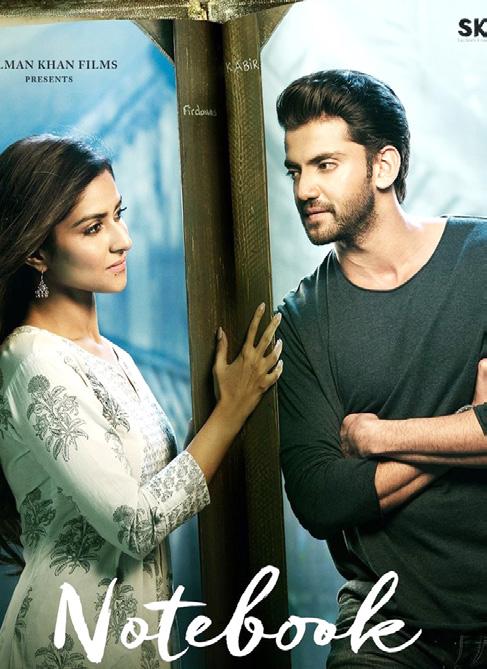
2 minute read
THE GRAHAM STAINES STORY
from 2019-04 Sydney (1)
by Indian Link
feel cynical about its pure-hearted depiction of love, is a very rare occurrence in cinema today.
One wishes though that Kabeer and Firdaus’ meeting would have been more tellingly crafted.
The two newcomers are fluent in their movements expressing growing fondness for their doppelganger love.
Zaheer Iqbal is unconventionally heroic. Pranutan has a fragile yet strong presence. With time this talent can be polished into a definition of gleam.
There are some very capable new actors, some Kashmiri, in supporting roles. And the seven children who are an integral part of the film's winsome aspirations, will win your heart.
I know we say this each time Kashmir is put on celluloid. But this one is truly shot like a dream by cinematographer Manoj Kumar Khatoi. Every frame tells the story of a Valley bruised battered and wounded by violence while preserving the sanctity of the love that runs through the film like a colt in the wide-open. In every frame the protagonists seem to hold each other's hands without being together.
Notebook is a film replete with rich resonance. The unhurried pace ensures we absorb the emotions that trickle down from the frames. But the desperate effort to forge a clumsy climactic shootout from the raw yet resonant material was uncalled for. This film needed no manipulative hands. It wins us over without trying.
And the symbolism of a gun being drowned in the lake is out of place in this polished work.
Subhash K. Jha
missionaries to take on impossible odds?
That's the question I wanted to ask as Stephen Baldwin's altruistic role of the Christian missionary filled up the screen with a sunlit dazzle.
Shooting the film in rural Odisha is just about the best way the director could have chosen to not allow the wild improbabilities of the plot (a newspaper editor hell-bent on proving Staines' conversion scheme turns out to be a leper's son). The characters and their environment exude the stifling air of a social condition that breeds inequality and disharmony.
Rural Odisha is captured by cinematographer Jayakrishna ratification of his intentions.
Sharman is as usual, a portrait of earnest brilliance.
The Least Of These takes a very dangerous stand on the issue of conversion by whittling down the religious issue to a far deeper spiritual crisis.
At the end of the film the journalist speaks to us and draws a contrast between religious conversion and conversion from "nothingness to significance". There is a moment that can easily be seen as an attempt to glorify Christian evangelism and manipulate our emotions into submission, when Staines' wife is informed of the ghastly tragedy.
"I forgive those who have done this," Gladys Staines says when informed she has just lost her husband and two children.
Such a far-reaching level of forgiveness is hard to achieve in the human context. We can dismiss it as pamphleteering. And yet this is exactly how the real Mrs Staines had reacted. What sort of a passion drives the
Gummadi with a striking lack of selfcongratulations. In this week's other release Notebook it is Kashmir and Kerala in Junglee. Is our cinema going back to its roots? But it's not where the story unfolds that matters in The Least Of These. It's the sheer barbarism of a religious order that championed tolerance that bothers us while watching this moving but dissatisfying film.
How many more Graham Staines to prove how dedicated we are to preserving our religious sanctity?
Subhash K. Jha









